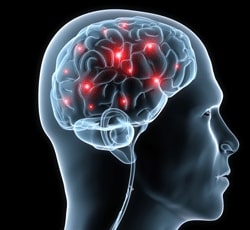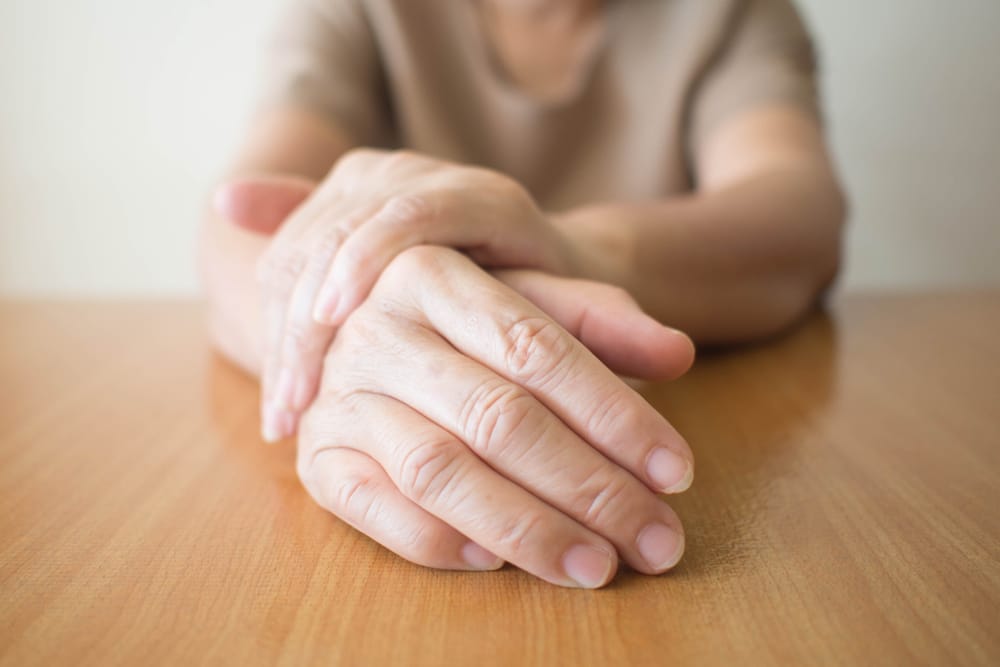Learn how Deep Brain Stimulation can be an effective Parkinson’s Disease Treatment
Parkinson’s Disease, an achronic motor system disorder, can be a debilitating disease. It can lead to tremors, stiffness in the muscles, slow movement, difficulty walking or balancing. While medication can sometimes be an effective Parkinson’s Disease Treatment, at times, it is not enough. That is why the Neurosurgeons at Texas Neurosurgery in Dallas, TX offer Deep Brain Stimulation (DBS), to their patients. This surgical procedure is a more dramatic Parkinson’s Disease Treatment. If you are interested in this treatment, contact our office in Dallas, TX.
What is Deep Brain Stimulation?
Deep brain stimulation (DBS) is a surgical procedure that serves as a Parkinson’s disease treatment. This procedure is for patients who do not respond to medication. Deep Brain Stimulation (DBS) deactivates the parts of the brain that trigger the disease without destroying nearby brain tissue.

Benefits of Deep Brain Stimulation
Deep Brain Stimulation offers a range of advantages for patients with movement disorders and certain neurological conditions, including:
- Symptom relief – reduces tremors, rigidity, stiffness, slowed movement, and abnormal motor control.
- Consistent effectiveness – provides continuous, adjustable relief when medications are no longer working well.
- Improved quality of life – helps patients regain independence and return to daily activities.
- Fewer medication side effects – often allows for reduced reliance on prescription drugs.
- Customizable therapy – device settings can be adjusted over time to match changing needs.
- Reversible and safe – unlike some surgical options, DBS does not permanently alter brain tissue.
Candidates for Deep Brain Stimulation
DBS is not right for everyone, but it can be highly beneficial for carefully selected patients. Ideal candidates typically include:
- People with Parkinson’s disease, essential tremor, or dystonia who still have significant symptoms despite medical treatment.
- Patients who experience inconsistent results or side effects from long-term medication use.
- Individuals in generally good health who can undergo surgery safely.
- Patients who are motivated and able to participate in necessary follow-up care, including device programming.
- Those whose symptoms significantly impact daily life and would benefit from improved mobility and function.
At Texas Neurosurgery, each patient undergoes a thorough evaluation, including imaging studies, neurological exams, and consultation, to confirm whether DBS is the best treatment option.
The Deep Brain Simulation Procedure in Dallas, TX
During the DBS procedure, your surgeon will implant a small device called a neurostimulator under the skin of the chest. This battery-operated device is similar to a pacemaker for the heart. It is designed to prevent tremors and other symptoms of Parkinson’s disease through electrical stimulation to the areas of the brain that control movement. Your surgeon will connect the device to electrodes that are placed in the brain to directly deliver the electrical signals.
Before the procedure, your doctor will use MRI or CT Scanning to determine where they will place the electrodes. For most patients, the electrodes will be put on the thalamus, subthalamic nucleus and globus pallidus.
After Your Surgery

After the Deep Brain Stimulation (DBS) procedure, most patients experience significant symptom relief. However, you may still need to take medication to treat the disease, although typically at a reduced dosage. Dosage reduction also helps limit the occurrence of side effects and can lead to an overall higher quality of life for patients with Parkinson’s disease.
Why Choose Texas Neurosurgery LLP
At Texas Neurosurgery LLP, patients benefit from the leadership and expertise of Dr. Shaad Bidiwala, a highly respected neurosurgeon with a unique blend of medical and engineering expertise. With board certification from the American Board of Neurological Surgeons and a background in electrical engineering, he brings both advanced technical knowledge and surgical precision to the treatment of complex neurological conditions. He focuses on innovative, minimally invasive treatments for spine and brain disorders, including deep brain stimulation (DBS) for conditions such as Parkinson’s disease, essential tremor, and epilepsy. His reputation for excellence has been recognized not only by patients and peers but also by independent evaluators, such as being named one of the top Dallas–Fort Worth spine surgeons for surgical outcomes.
Dr. Bidiwala and the Texas Neurosurgery team collaborate with patients and primary care providers to ensure that every treatment plan is right for the individual’s condition and goals. Whether treatment involves advanced technologies like computer image-guided brain surgery or conservative care options, the focus is always on delivering safe, effective, and compassionate care. With hospital affiliations at leading institutions such as Baylor University Medical Center and Baylor Uptown, patients can feel confident they are receiving world-class neurosurgical treatment supported by experience, innovation, and a patient-first philosophy.
Frequently Asked Questions
How long does the DBS procedure take?
The entire surgery usually takes about four to eight hours, depending on the complexity and whether one or both sides of the brain are being treated.
Is DBS surgery painful?
Pain is minimal during the procedure. Local anesthesia is often used when placing the electrodes, so patients may be awake but comfortable. General anesthesia is used for the placement of the pulse generator in the chest. Postoperative discomfort is typically mild and managed with pain medication.
How soon can I return to normal activities after DBS surgery?
Most patients can begin light activities within a few days and return to their normal routines in about four to six weeks. However, recovery time may vary depending on individual health and healing.
Schedule a Consultation
Dr. Bidiwala is an expert in Deep Brain Stimulation. To learn more or schedule a consultation with him please call our office today.

